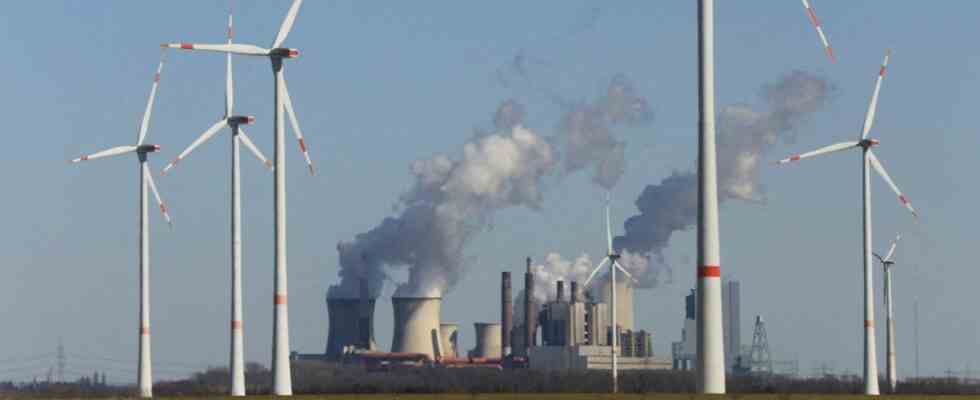Whoever buys an RWE share participates in an almost curious mixture. It is true that Germany’s largest electricity producer now generates almost half of its profits with wind and solar parks in half the world, and the trend is rising. But RWE is still one of the largest CO₂ emitters in Europe, with coal-fired power plants and opencast mines in the Rhineland, for which other villages are to make way.
But how long this contrasting structure should continue to exist was the question that dominated the RWE Annual General Meeting. Starring: a critical investor. A CEO trying to keep calm. And shareholders who are starting to get restless.
The critic’s name is Enkraft Capital, and he comes from near Munich. And although the company does not even own one percent of the shares, it puts RWE under pressure with sharp letters to the executive floor. At the shareholders’ meeting, Enkraft submitted a counter-motion that had it all: According to this, RWE should spin off the climate-damaging coal business as quickly as possible. This is the only way the company can unequivocally commit to renewable energies.
Many corporations have shown how such a separation works: For example, in 2020 Siemens shareholders received additional shares in the spin-off subsidiary Siemens Energy; Daimler shareholders recently received shares in the outsourced truck division. Shareholders can then decide whether they want to remain involved in both parts or not.
Enkraft argues that the coal business will soon be economically negligible for RWE. But because of him, the whole company is worth less on the stock exchange than it would be as a purely renewable generator. The coal distracts the board from focusing on wind and solar. “The ongoing inactivity of the board can no longer be justified and is unacceptable,” complains the investor.
According to the coalition agreement, the federal government wants to examine a foundation for the coal phase-out
CEO Markus Krebber replies that he is consistently aligning the group with the “green” energy world. He refers to bids for additional wind parks and the construction of new solar parks: “RWE is becoming greener, larger and more valuable.” So far, Krebber is sticking to the politically agreed plan to gradually shut down lignite-fired power plants by 2038 at the latest. Of course, RWE is “ready for discussions in due course about bringing forward the phase-out of coal to 2030”.
However, Krebber argues that a spin-off of the coal division would not accelerate the change. “It would not save a single ton of CO₂.” Acting with a crowbar is not good corporate management. And if the general meeting now decides on a spin-off, this would close other options, he warns, “like the foundation model mentioned in the federal government’s coalition agreement.”
In fact, the paper by the SPD, Greens and FDP states that they want to consider creating a foundation or company “that organizes the dismantling of coal-fired power generation and renaturation”. The RAG-Foundation in the Ruhr area serves as a role model: since Germany abandoned coal mining in 2018, the foundation has used the income from its assets to pay for the so-called perpetual obligations, such as pumping water out of old mines.
Similarly, in the future a foundation could ensure that Germany gets out of lignite as quickly as possible, and that no lunar landscapes are left behind in previous open-cast mines. Of course, such a foundation would need the capital that companies like RWE have put aside for the so-called renaturation.
In addition to Enkraft, other shareholders emphasize that the fight against climate change is pressing. Nevertheless, for example Union Investment, the fund company of the Volks- und Raiffeisenbanken, does not consider a quick spin-off of the coal business to be expedient. “The environment is not helped if RWE emits less CO₂ and another owner converts the Rhenish lignite into electricity,” argues representative Henrik Pontzen: “Coal does not belong in other hands, it should be abolished.”
In the end, only 2.44 percent of the shareholders represented voted in favor of Enkraft’s counter-motion. Of course, ambivalent contributions like that of Deka are also remembered: the savings bank fund house basically advocates that RWE should split off the coal division. “If there is a better alternative than a foundation solution, it should be pursued,” says Deka representative Ingo Speich. Nevertheless, he voted against Enkraft’s application because he did not want to limit RWE’s options prematurely. “Decisions have to be made,” warns Speich, but also: “We will assess the entire RWE board of directors, including the supervisory board, in this special matter and make our judgment at the next general meeting.”

